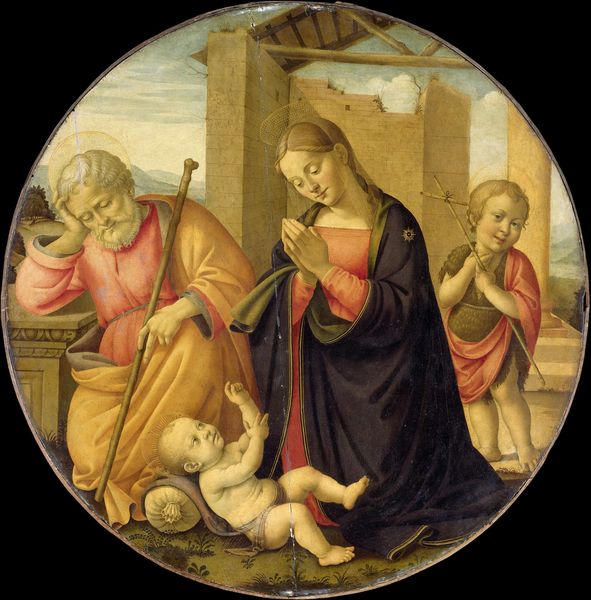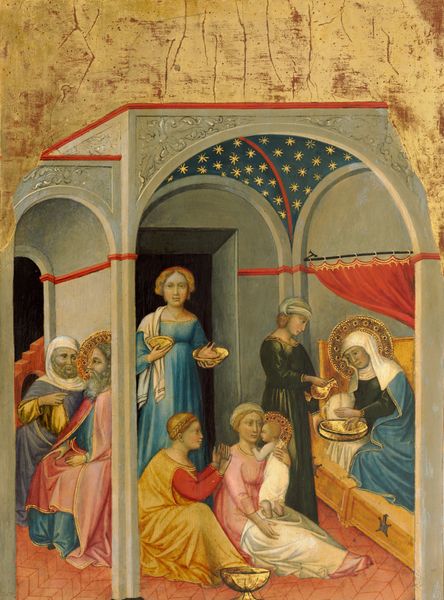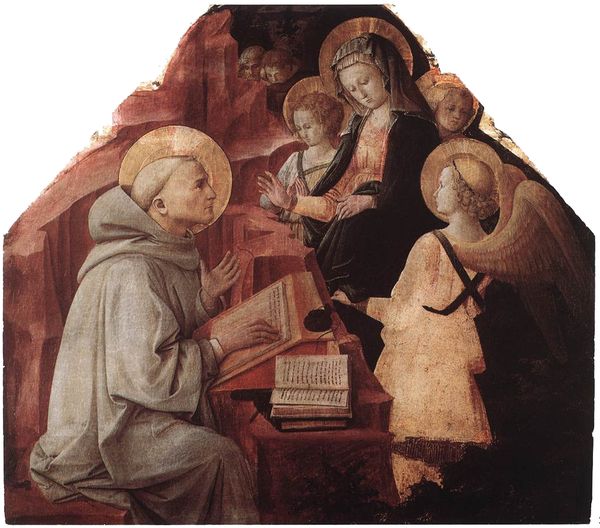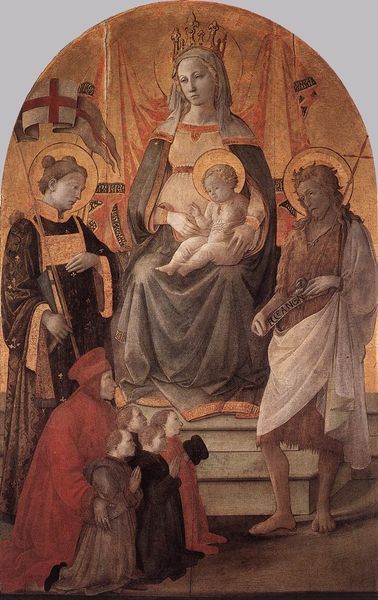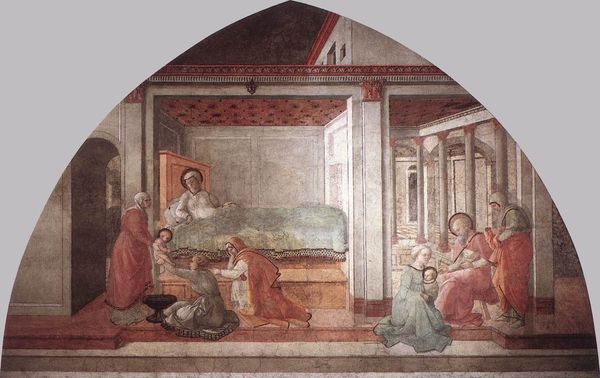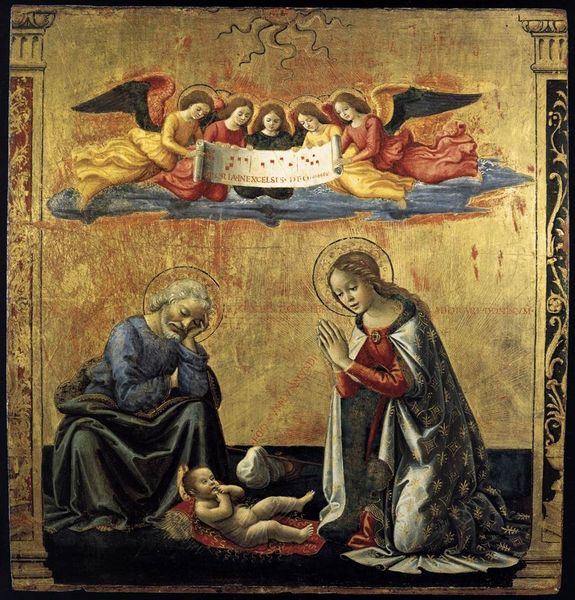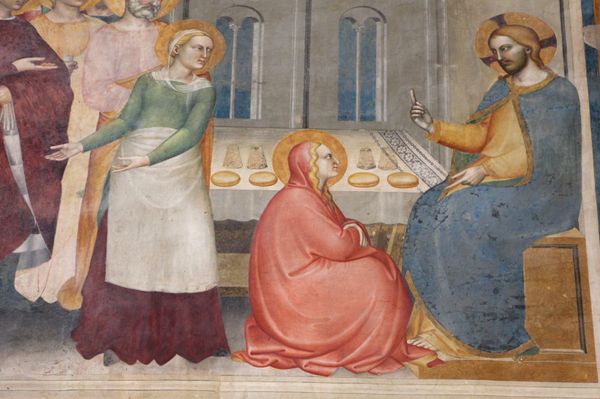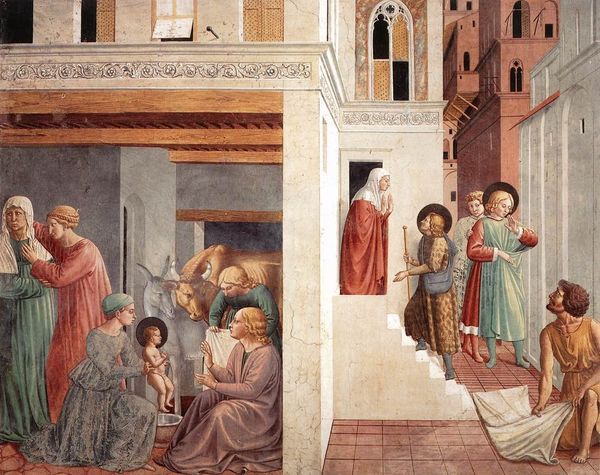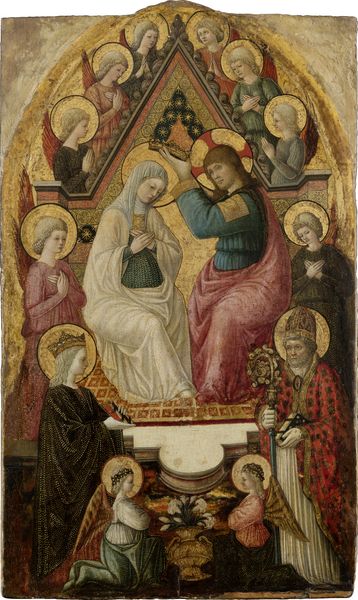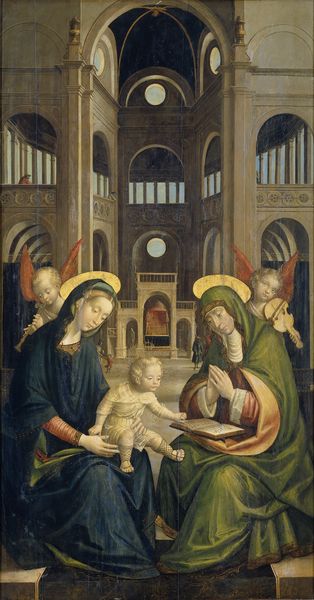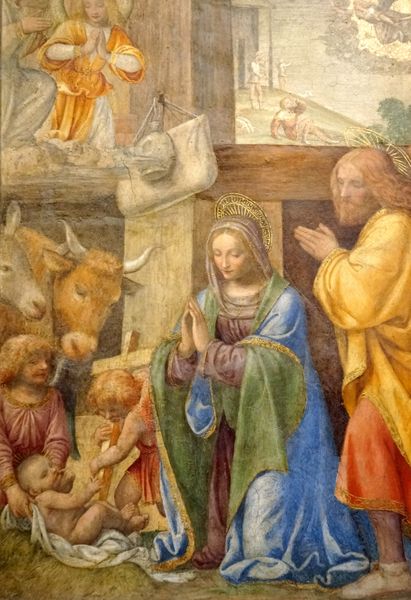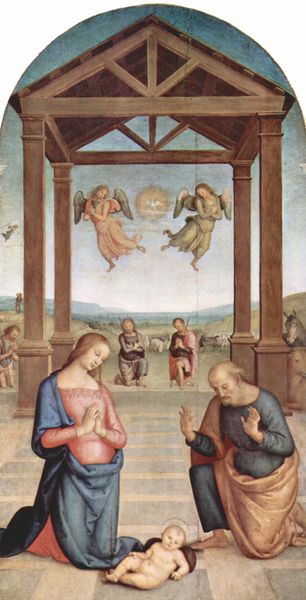
painting, fresco
#
portrait
#
painting
#
figuration
#
fresco
#
oil painting
#
christianity
#
history-painting
#
italian-renaissance
#
early-renaissance
Copyright: Public domain
Filippo Lippi rendered this detail of "Birth and Naming St. John" with fresco, presenting a study in colour and form. The pale hues create an atmosphere of serene contemplation. Notice how the architecture provides a linear structure, the columns acting as vertical markers contrasting with the soft, flowing drapery of the figures. Consider the composition. The figures are arranged in a pyramidal shape, a classical device used to create balance and harmony. The colour palette is subdued, with muted reds, greens, and whites dominating. This reflects the Early Renaissance interest in naturalism, moving away from the more vibrant, symbolic colours of the earlier medieval period. The architecture is depicted with a clear understanding of perspective, creating a sense of depth and space. Yet, the figures are somewhat flattened, lacking the full three-dimensionality that would become a hallmark of High Renaissance art. Lippi's fresco showcases a transitional moment in art history, balancing linear structure with soft, contemplative colour. This tension between line and colour shows how art can exist in a state of perpetual interpretation.
Comments
No comments
Be the first to comment and join the conversation on the ultimate creative platform.
